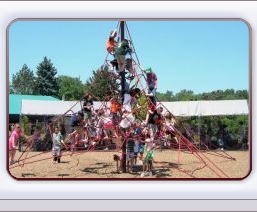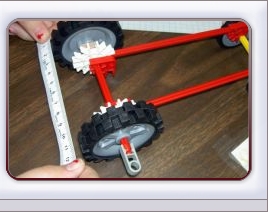



 While I would describe myself as a strong proponent of home education, I am not a supporter of all, or even most, families home educating their children. The level of parental commitment is beyond what many families can manage. I do not support home education as a method of cultural indoctrination or as a method of wholesale removal from broad social interaction. That said, I have never met a family who has been home educating their children for these reason in Australia.
While I would describe myself as a strong proponent of home education, I am not a supporter of all, or even most, families home educating their children. The level of parental commitment is beyond what many families can manage. I do not support home education as a method of cultural indoctrination or as a method of wholesale removal from broad social interaction. That said, I have never met a family who has been home educating their children for these reason in Australia.
I believe that in some circumstances home education can provide an education that is at least as effective as a school based education. In the primary school years, if there is a strong family commitment, children can learn efficiently from structured and unstructured learning experience. It is not an easy path and should not be taken on lightly, but the majority of parents could home educate their primary school aged children if they had the strong desire to do so.
While there is limited empirical evidence, I believe that in the early and primary school years a child's learning should not be rule based and that children should not be “taught at” during this period. Children should be free to explore and investigate the world around them. In much the same way that children learn to communicate and walk in their early years they will develop the basic academic skills if provided with a stimulating environment and encouraged to see the functional usefulness of these skills. Children learn to walk as they see the functional benefits in this method of transportation. They learn to talk as it is a more efficient method of communicating their needs and desires. Children can learn the basics of reading, mathematics and all other academic endeavours if they are modelled by caregivers as having a functional purpose that the child aspires to. A child will soon learn many mathematical concepts when they understand the uses and purchasing power of money. A moneybox full of coins can provide hours of educational enrichment and more importantly fun, if a parent gently develops activities such as counting, dividing and sorting. Through this type of educational structure children can gain all the basic life (and academic) skills they require without some of the negative aspects of a classroom based education. There is reduced competition and increase collaboration, there is reduced peer group pressure to conform to social norms which can focused on consumerism and popularity rather than education. There is also the ability to tailor the educational experience to the individual learning style and cognitive abilities of each child. This educational philosophy is highly regarded in the education literature but is very difficult to achieve in a large classroom environment.
I see no reason that dedicated families cannot home educate their children through the high school years also. While it will require additional resources and specific learning environments may need to be developed, many parents can home educate their children through the high school years. However, depending on the child’s interests, abilities and motivation, specific strategies may need to be developed to help the child achieve their long term educational and career goals. However, there is very limited research examining home education in Australia.
Through my project I hope to further develop our understanding of how home education works and to improve the educational outcomes even further. A secondary part of my interest in home education is to assist traditional schools in developing some of the tools that Broadhurst (1999) highlights as being utilised in a home education environment. Techniques such as one-on-one tuition, peer learning and teaching, individual learning and ability based learning are all commonly used in home education and are discussed in the literature as tools that will allow greater inclusion in traditional classrooms for children of all abilities (e.g. Mastropieri & Scruggs, 2012). Through gaining a greater understanding of the use of these tools and techniques in a home education environments it is hoped that greater efficiencies and learning can occur in school classrooms.

